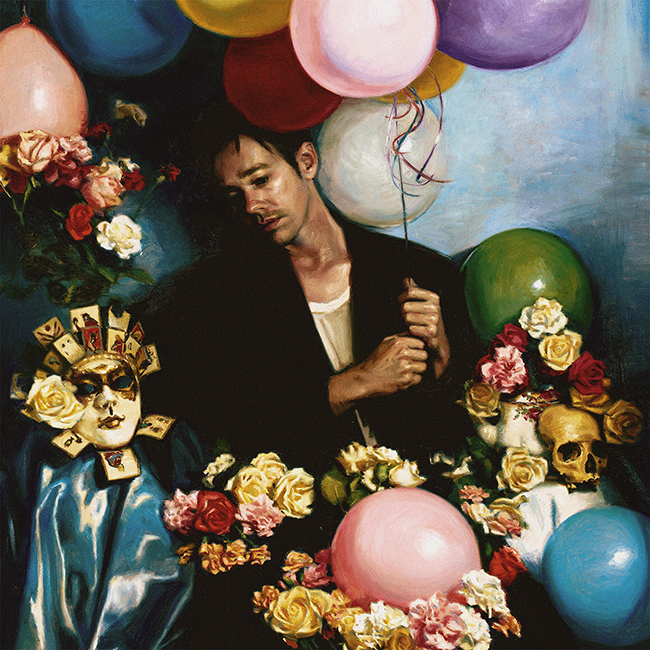
Nate Ruess has a voice that demands the listener’s full attention—big and boisterous, able to communicate deep emotion even when all it’s doing is sustaining a note beyond a single syllable. It blends the showiness of musical theater with the smaller gestures one might hear at a dank basement show, splitting the difference between the extroverted gesture that reaches an arena’s rafters and the intensely personal performances facilitated by tight spaces.
Ruess’ yelp became part of the pop firmament when his band fun. released its 2012 breakthrough Some Nights, a collection of anthemic tracks with an omnivorous slate of influences—arena-rock’s pomp, drinking songs’ wincing camaraderie, punk’s wordy lyrical density, Kanye West’s willingness to send codas into space. (Compare the end of “Nights” closer “Stars” to the stretched-out fade of West’s “Runaway.”)
Now, that voice is front and center on Grand Romantic, Ruess’ first solo album. While Romantic is very clearly part of the continuum on which Some Nights sits—some of the songs grew out of the post-Some Nights period, and the two albums share Jeff Bhasker, one of the minds behind “Runaway,” as producer—it doubles down on the ideas that exist outside of even the most maximalist rock. Harps glitter on the title track’s edges before it turns into a smoldering showcase for the upper end of Ruess’s vocal range; “It Only Gets Much Worse” is a back-of-the-bar ballad that explodes into something worthy of Busby Berkeley staging, thanks to meticulously arranged strings. And the ending of “Brightside,” all angelic choirs and sparkling keyboards, could double as a lullaby, complete with delighted coos of, “Well, look at you.”
But big, showy rock also crops up. “AhHa,” the album’s first proper song, is animated by Ruess’s sneering cackle, though the insecurity that marked the best tracks on Some Nights is still there—”Called my mother said I love her/ had another and another one,” he gasps as the music gallops around him. “Nothing Without Love” is a swirling sea shanty that swells into a ragged singalong. The deliberate march “Harsh Light” is tailor-made for singalongs at parties and festivals, its refrain of “we’ve all got scars” not reveling in the damage that caused those reminders of the past but in the way they signify survival. Beck drops in for the relatively straightforward love song “I Guess That’s What This World Is Coming To”; Jeff Tweedy contributes guitar to the echoing ballad “Take It Back.”
There are a couple of moments that don’t quite fit; scorched-earth guitars lurk underneath Ruess’s growls and yips on the verses of “You Light My Fire,” but the chorus’ keyboards sound beamed in from a Technicolor-bright, millennial-pitched car ad. Then again, passion projects are rarely perfect, and Ruess’s pop star potency comes in large part from the way that he absolutely throws himself into his material. His hyperpersonal lyrics, with their details of past missteps and exhortations of love, succeed in part because they’re so particular, and they’re so human that they have to be delivered with 100% sincerity. That openness makes “Grand Romantic” a compelling warts-and-all statement of purpose, a declaration of intent to live as a human.
More Must-Reads from TIME
- Donald Trump Is TIME's 2024 Person of the Year
- Why We Chose Trump as Person of the Year
- Is Intermittent Fasting Good or Bad for You?
- The 100 Must-Read Books of 2024
- The 20 Best Christmas TV Episodes
- Column: If Optimism Feels Ridiculous Now, Try Hope
- The Future of Climate Action Is Trade Policy
- Merle Bombardieri Is Helping People Make the Baby Decision
Contact us at letters@time.com